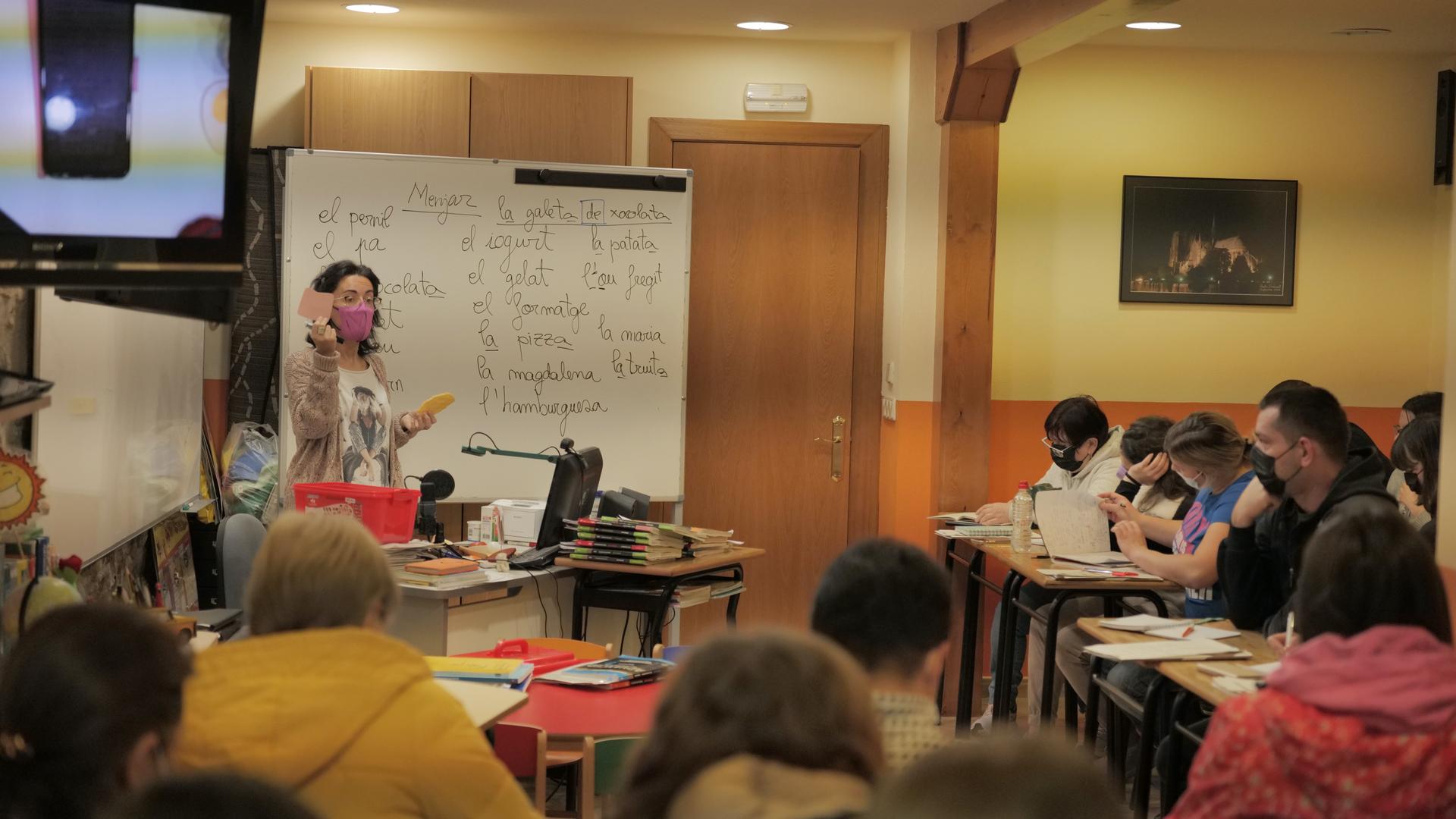Refugees find a welcome in Catalan Guissona’s ‘Little Ukraine’
On an early morning, two dozen weary Ukrainians shuffle into a school in the medieval downtown of Guissona in Spain’s Catalonia region. They’re young and old, and mostly women. None of them speaks a lick of Spanish or Catalan.
Today’s Catalan lesson: the names of food.
“Bread, chocolate,” said volunteer teacher Marta Farré, holding up plastic versions of each item.
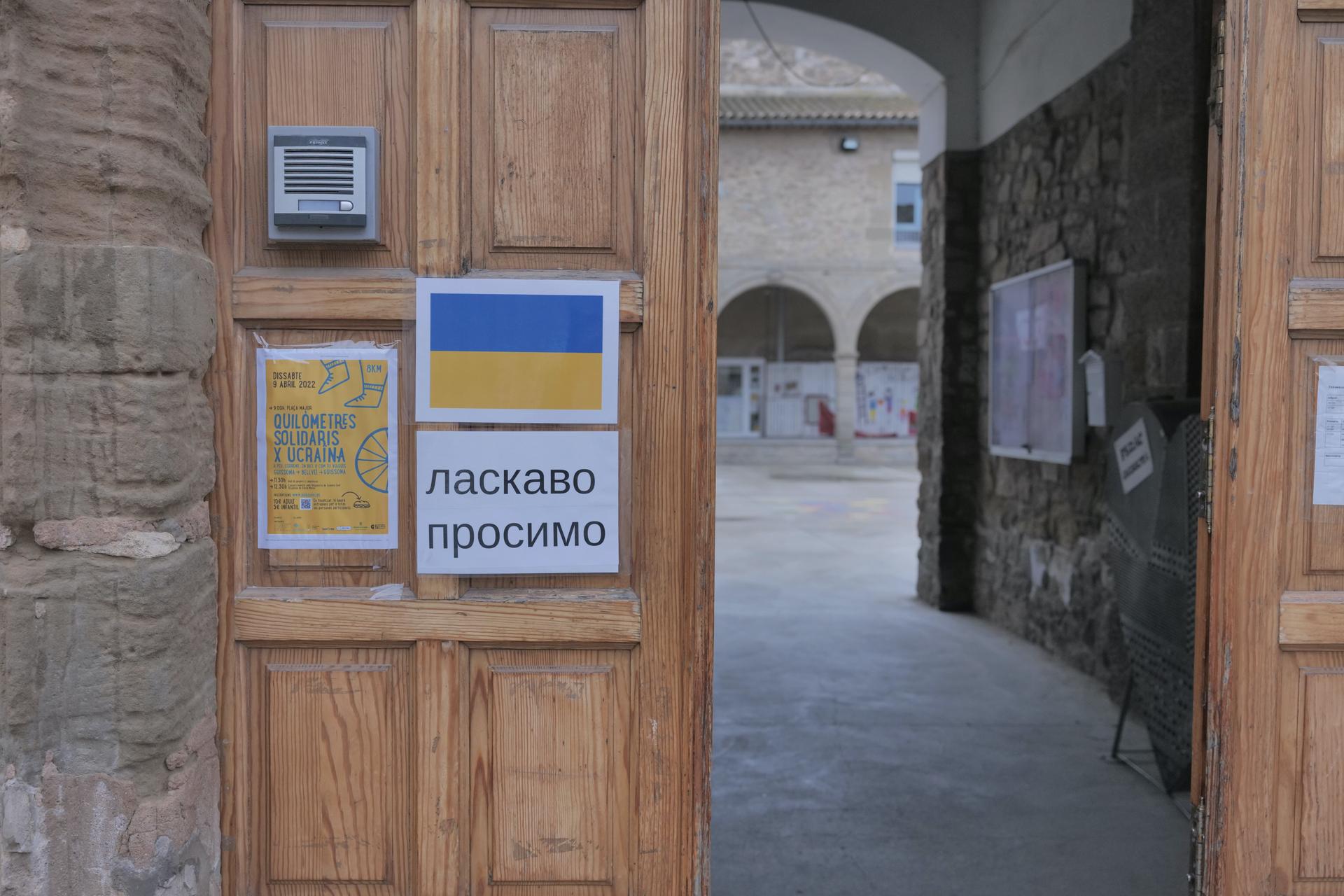
By the end of the Catalan-language class, the refugees know some basic words for that most basic of needs: eating. It’s practical information, Farre said, but also something deeper.
“When they come into class, they are sadder and when they leave, they don’t look so miserable. They smile and they are happier.”
“When they come into class, they are sadder and when they leave, they don’t look so miserable,” she said. “They smile and they are happier.”
The class is just one example of how some Ukrainian war refugees are finding welcome in an unlikely, faraway place. Locals call Guissona, a town of 7,500, “Little Ukraine,” because 1 out of 7 residents in the Catalan farm town hails from there. And that was before Russian President Vladimir Putin launched his most recent invasion.
Related: Russia faces growing outrage amid new evidence of atrocities
Ukrainians came to Guissona years ago to work in the local meat plant. Now, hundreds more are arriving, drawn by family and the town’s fame.
Catalan class does seem to cheer up a young mom named Maria Nevirko. Afterward, she walks through the old city.
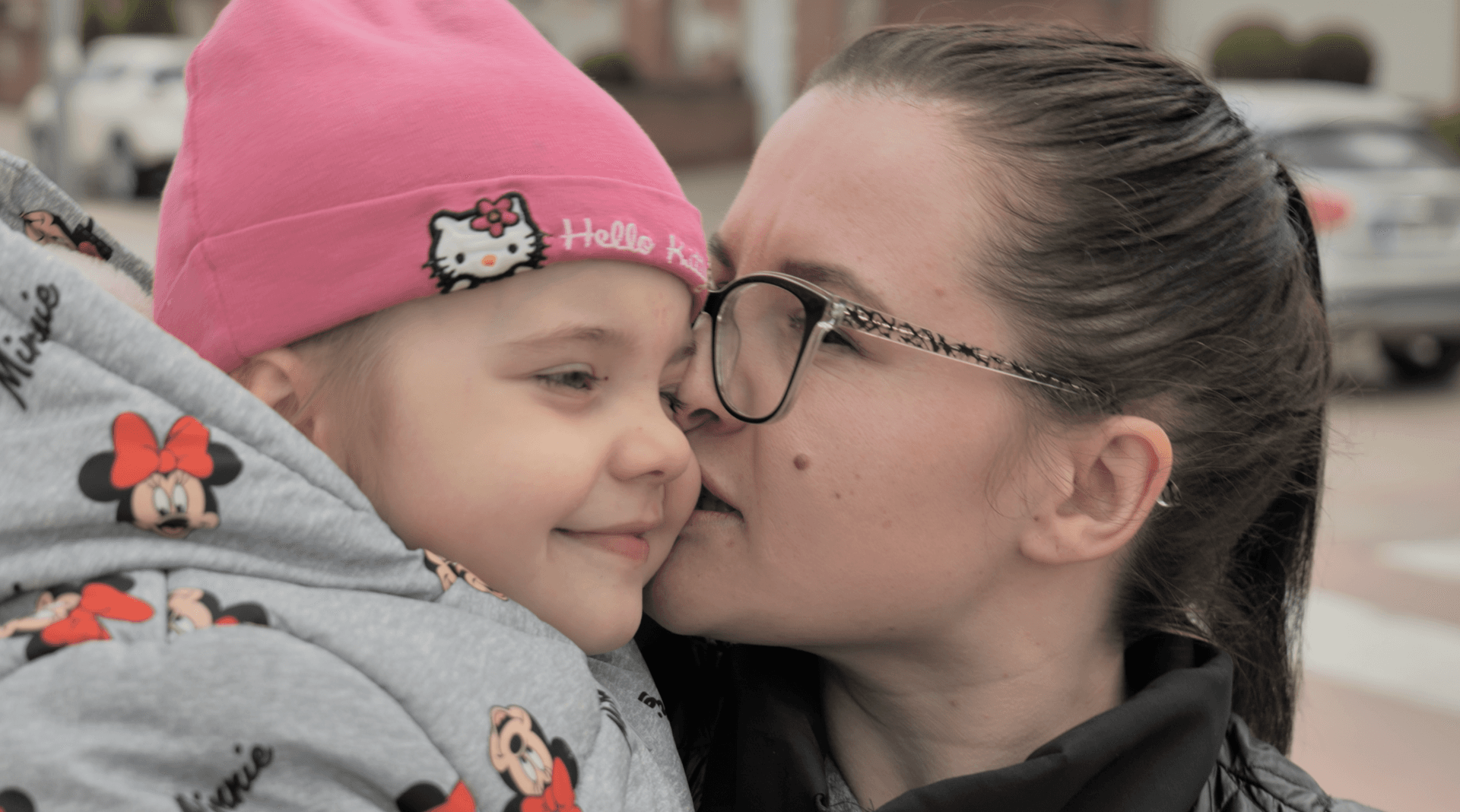
“Language classes help me,” Nevirko said. “I know numbers in Catalan. I know fruits, vegetables — very simple words.”
Nevirko fled to Spain with her 3-year-old daughter, Veronik. She said that Veronik is still in shock after their harrowing, weeklong escape across Europe. Like many of the arriving refugees, they have family here. Nevirko’s cousin, Bogdan, has worked in town for 17 years. He’s taken them in.
“But all people in Guissona are very beautiful,” Nevirko said. “They help me. I am very grateful.”
Nevirko’s grateful for classes, and for the fact that she’s already gotten her health care, residency and work papers — all in about two days. Typically that process takes months, even years.
Guissona’s mayor, Jaume Ars, said that the town has drawn immigrants for decades because it has jobs to offer.
Related: The Russian invasion shows how digital technologies have become involved in all aspects of war
“Unemployment is at 4.8%,” he said. “And that’s thanks to a big company that expanded in the ’90s.”
That company is BonArea. It produces and packages meat products. As it’s expanded, it’s grown from 2,000 to 6,000 employees. And that transformed this sleepy place into something unique.
City Hall needed to shift gears to serve its newly diverse constituents.
“There are 7,500 people in Guissona and 43 nationalities,” Ars said. “Everyone’s suddenly talking about us, but we’ve have been working for 10 years on social cohesion and inclusiveness.”
The town prints announcements in multiple languages, holds regular meetings with its different communities, and has helped set up associations for the Moroccan, Romanian and Senegalese expats. And when the war in Ukraine started, Ars took action. He sent buses into Ukraine to bring back refugees, while volunteers were ready when they arrived.
One local couple, Imma Villorbina and Anton Gomà, have taken in two Ukrainian families from the destroyed city of Karkhiv, near the Russian border.
“The government is really supporting us. During other wars it was very hard, say, to take in someone from Syria. If some crazy person were bombing my country, I wouldn’t know where to turn.”
“The government is really supporting us,” Villorbina said. “During other wars it was very hard, say, to take in someone from Syria. If some crazy person were bombing my country, I wouldn’t know where to turn.”
Villorbina and Gomà checked in on the families on a rainy evening. Refugees Larysa Kulieshova, and her friend, Elmira Galenko, served tea. Kulieshova said that they have Ukrainian friends in other countries who don’t have it so good.
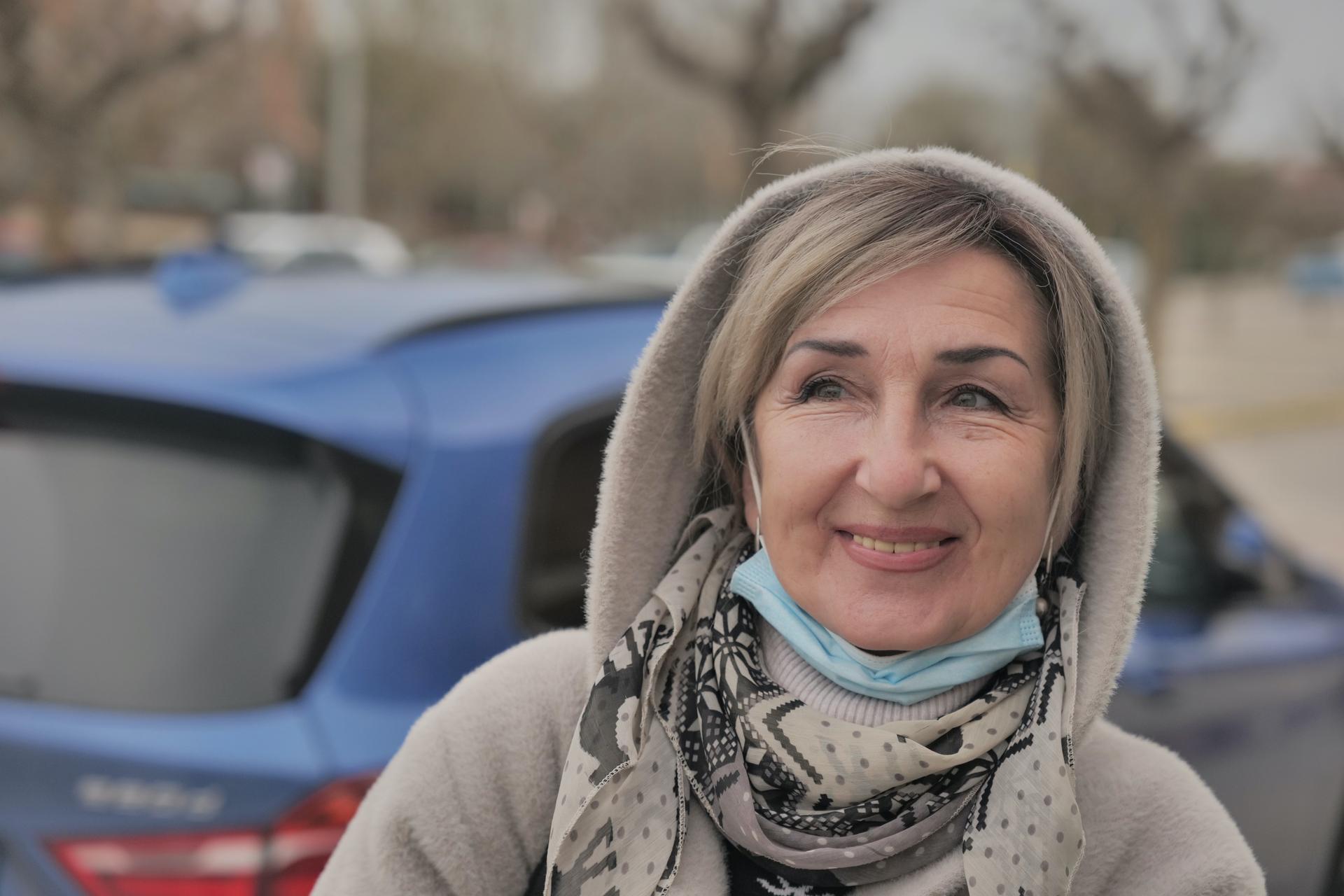
Related: Navigating war without sound: Ukraine’s deaf refugees
“They’re sleeping in gymnasiums with just curtains separating them from others,” she said. “Here, we each have our own bedroom.”
They’re thankful, but exhausted. Galenko escaped with her husband and kids, including their toddler, as bombs fell around them. The last thing she remembers seeing, she said, were Russian tanks driving around the destroyed buildings in her neighborhood.
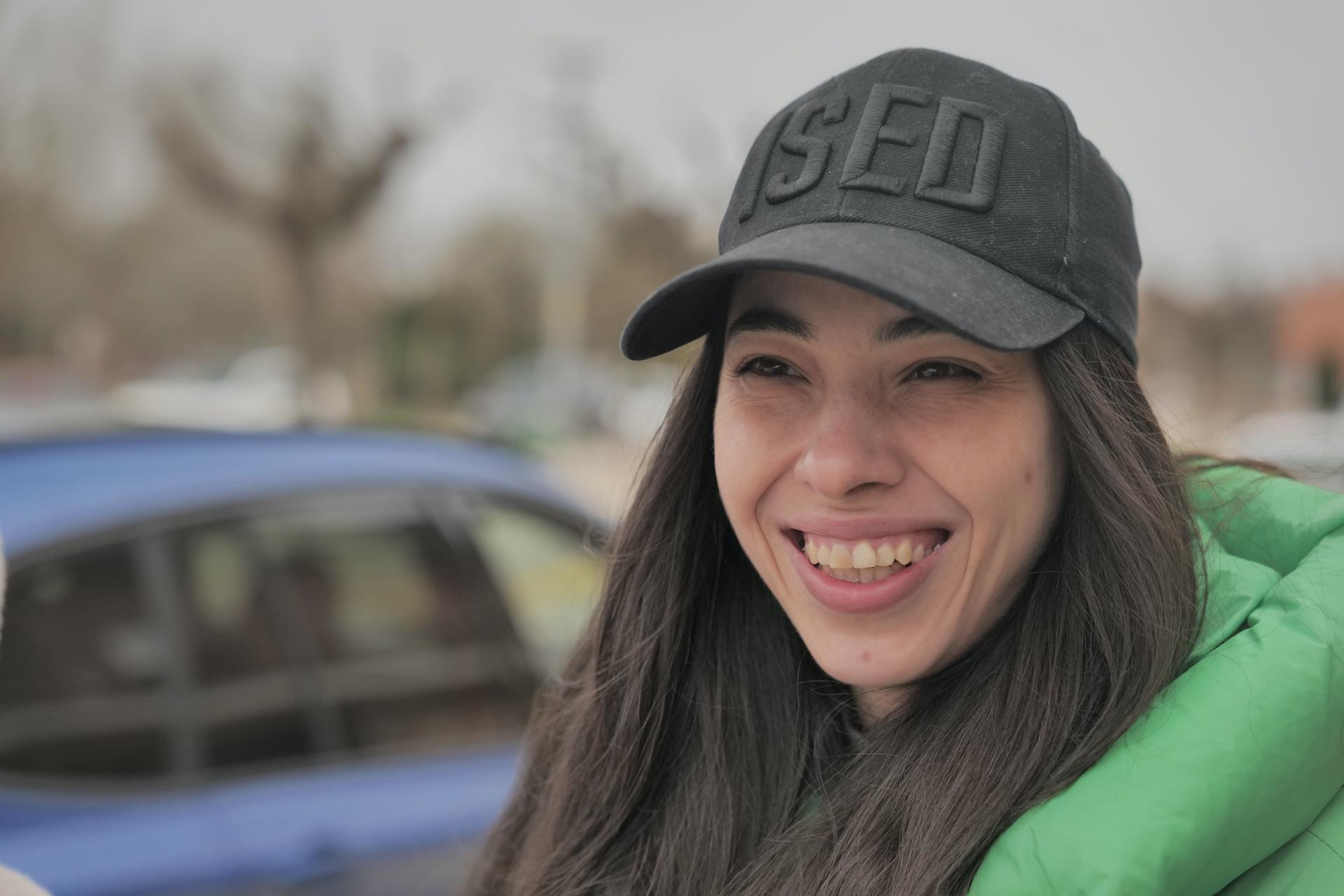
“We saw how the city had been reduced to rubble,” she said. “To see it like that, destroyed, was really hard. It felt so terrible to drive away.
That same evening, Galenko tried to phone her mother, who stayed behind. But no one answered. She worries, as all refugees do, about her loved ones back home.
The town’s residents do what they can to keep them connected. On a recent Sunday night, the town’s very own Ukrainian choir sang at the church. As the music brought people to tears, more buses were making their way from the war-torn Ukraine to Guissona, with refugees aboard.
Our coverage reaches millions each week, but only a small fraction of listeners contribute to sustain our program. We still need 224 more people to donate $100 or $10/monthly to unlock our $67,000 match. Will you help us get there today?
